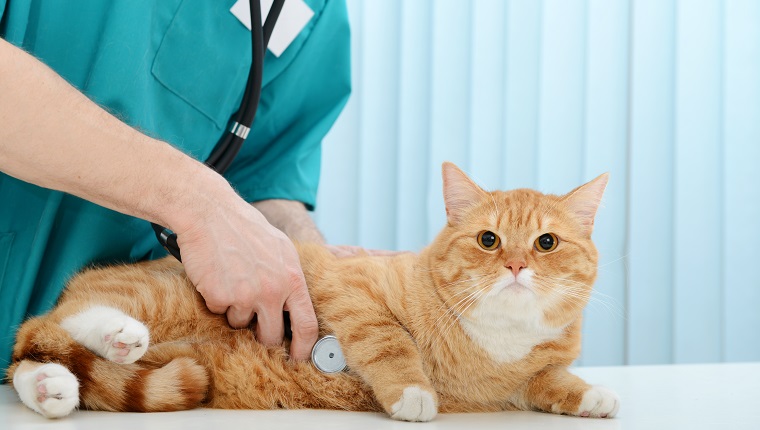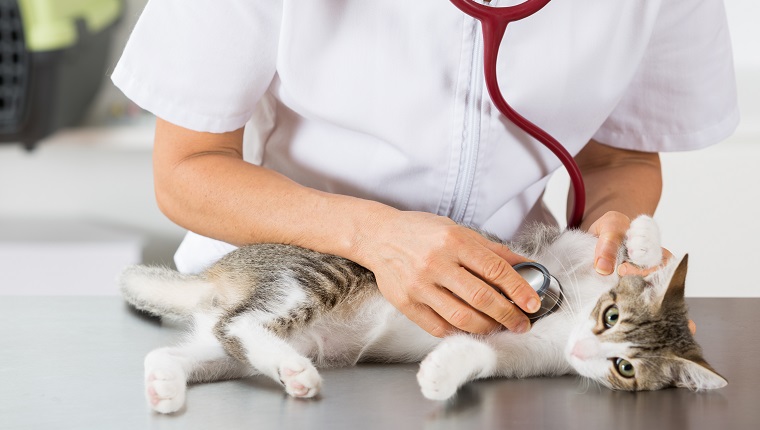Rhabdomyoma in cats refers to a benign tumor that is usually found in the heart; although in some cases, these tumors have also developed in the ears.
The condition is mostly congenital in nature, which means a kitty is born with it; however, it is a relatively rare condition. When cats develop these tumors, they might display similar symptoms to other types of congestive heart issues.
If you see signs that your feline might be suffering from a heart tumor, then you must consult your veterinarian for a proper diagnosis and course of treatment. Here’s what you should know about the symptoms, causes, and treatments of rhabdomyoma in cats.
Symptoms Of Rhabdomyoma In Cats
Rhabdomyoma is a condition that many times will not result in a cat displaying any visible symptoms.
Although in some cases, the condition will produce swelling around the affected area, and cats might also show the signs of congestive heart failure on the right hand side.
Causes Of Rhabdomyoma In Cats

Rhabdomyoma in cats is considered to be idiopathic, which means that there is no medically confirmed cause for the condition.
In many cases, the condition is classified as congenital in origin, meaning it is present at birth.
Veterinary Treatments
If you think that your cat might be suffering from rhabdomyoma, your veterinarian will want to ask about your feline’s full medical history. They’ll also carry out a full physical examination, along with blood and urine tests.
In many cases, the use of X-rays and echocardiograms can help to confirm a diagnosis. The vet may also carry out a biopsy of any tumors that they find.
When it comes to treatment, medical management may provide a safer option than surgery. Your veterinarian will talk you through some options that could benefit your cat.
While surgery can be an option in some cases, most times undergoing any sort of heart surgery carries with it more potential risks to the cat than the condition itself.
If the vet diagnosis your cat with this condition, you should make sure to keep up regular visits to their vet to monitor the state of their health. At first, these visits might take place every month and can also help detect any early signs that the tumor is bringing on congestive heart failure.
Has your cat developed rhabdomyoma? How are you and your vet managing your cat’s health? Tell us all about it in the comments below.









